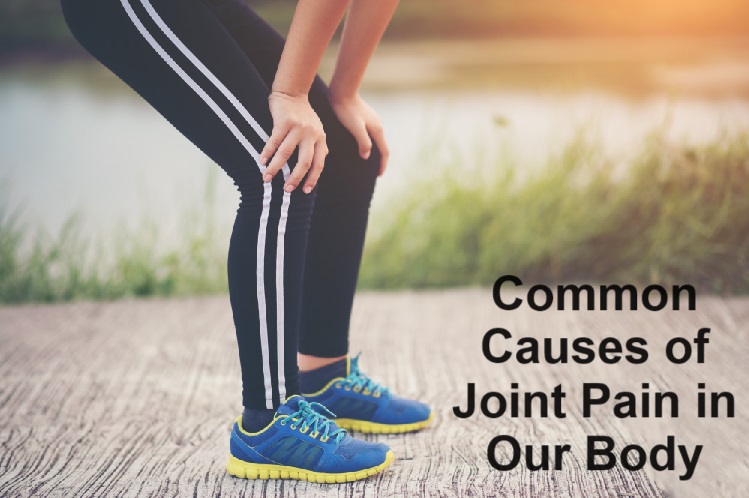
Without healthy joints, we cannot function normally even for one day. They are vital for an active, healthy, and happy life. If you are interested in learning about the common causes of joint pain and inflammation, consider the following article.
Types of Joints in Our Body
The human body is the most complex living organism on Earth. It comprises various systems; one of which is the skeletal system.
Our skeletal system contains a lot of bones and joints. These constitute the accumulation of various kinds of protein, calcium, and other essential organic components.
Our body has the following types of joints. Before we move on to the causes of joint pain, let’s discuss the types of joints we have.
The first kind of joint found in our body is the ball-and-socket joint. Our hip and shoulder joints fall in this category. The hip joint contains the femoral head and the acetabulum; here the femoral head is in the shape of a ball while the acetabulum is a concave cavity or the socket structure.
Next, we have hinge joints. Our knees and elbows are hinge joints.
Furthermore, we have gliding joints. Wrists and ankles are examples of such junctions.
Finally, we have pivot joints. These joints are the ones that rotate on their own axis. The neck and forearms are such parts of the skeletal system.
Causes of Joint Pain and Inflammation
In short, joint pain and inflammation can happen as a result of external traumas like accidents or falls and internal conditions like osteoarthritis, infection, TB etc.
Yet, the following are the major causes of joint pain especially in knee, hip, shoulder, etc.
Overuse: If you have recently worked your joints too much, maybe during over-exercise or a little too much strenuous activity, you are going to have joint pain. Overuse means one has put more pressure on joints than they can tolerate.
Injury: External traumas also lead to pain in the joints. Suppose you have fallen down hurting your knees or elbows. In that case, you might have to suffer from fractures, dislocation or just minor tears in soft tissues like ligaments, tendons, muscles, bursae, etc. And, this will result in the affected joint pain and inflammation.
Arthritis: This particular joint disorder affects billions of senior citizens across the world. However, it can also happen to young people, which is specifically called post-traumatic arthritis.
Infection: Infectious diseases can also lead to joint pain. For example, a person who has just recovered from the viral infection of Chikungunya experiences inflammation of more than two joints across the body.
Autoimmune Disorders: Furthermore, there are medical conditions like lupus, rheumatoid arthritis or psoriatic arthritis. These are diseases where our body’s immune system gets corrupted and hence starts harming the healthy cells and tissues of our own body.
When such disorders reach joints, you begin to experience joint pain and all sorts of inflammatory issues there.
Age: Age-related joint degeneration ultimately leads to osteoarthritis. It is a situation where the lubricating properties of your joints like the knee and hip have reduced considerably. Thus, you have to deal with pain, stiffness, swelling, and mobility issues there.
Sex: Women lose more bone mass than men after bone maturation, which is after 20s. This fact points to the reality that if women don’t take care of their calcium intake during their young years, they might have arthritic conditions in joints earlier in life than usual.
Can Joint Pain Be Cured at Home?
If you have recently started experiencing pain, swelling, redness and mobility issues around a particular joint like the knee or the hip, it is possible that this is not because of some underlying causes and might go away within weeks.
Take adequate rest and sleep. Don’t cut back on sleeping hours when you are not well as during this time, your body slips into its rejuvenation process. Hence, after sleep, your body has recovered from all sorts of traumatising experiences.
If you have knocked yourself down hurting any of your joints, it will be painful afterwards. So, instantly apply ice to the traumatised section. It will reduce swelling and tenderness. Ice reduces the blood supply to the injured joint and thus inflammatory conditions get hampered considerably.
Otherwise, inflammatory hormones will make their way to the affected joint, giving rise to inflammation after some time.
If joint pain doesn’t go away after a few weeks, you must consult an orthopedic doctor for the best medical advice. Visit the following link for an experienced bone specialist: the best doctor for joint pain in Delhi.
When to Consult an Orthopedic Doctor
If you are confused about whether you should go and see a joint doctor, consider the following information. A painful joint must be examined by an experienced bone specialist instantly, otherwise, the situation might become complicated.
●The pain in the affected joint is too much to bear and you have it every time you mobilise the joint. It has become severe and persistent.
●Besides pain, there is swelling and redness that have stayed for weeks or, perhaps, months.
●Morning stiffness and mobility issues in joints like knee or hip.
For all such extreme symptoms, it is advised you meet an experienced orthopedic doctor as soon as possible.
When Does Joint Pain Require Surgery?
Surgical procedures like a total knee replacement or hip replacement are only recommended when the joint has totally degenerated or damaged, losing its capacity to function normally without pain, stiffness, swelling and tenderness.
If you are an old person with advanced knee osteoarthritis, you may be advised a total knee replacement surgery to eliminate pain from the knee joint permanently.
Severe pain and mobility issues due to osteoarthritis cannot be treated without Arthroplasty or Joint Replacement Surgery.
Furthermore, a person who has severely injured his joint like the hip or the knee in an accident may require a replacement to correct the situation.
If you want to book a consultation with a well-qualified joint pain specialist, consider the following link: the best doctor for knee replacement surgery.
Non-Surgical Treatments for Joint Pain
In addition to home remedies and surgical interventions, there are other options as well for the treatment of joint pain.
Medications: A doctor will prescribe pain medicines first of all to relieve excruciating pain in the joint in question.
Physical Therapy: If joint inflammation and mobility issues can be treated through physical therapy like massage, exercise and ice-heat compressions, the doctor will suggest this therapy.
Injections: Corticosteroid injections or hyaluronic acid injections may be administered directly into the joint to provide relief from pain and inflammation. This method instantly offers relief from excruciating pain.
Conclusion
Joint pain isn’t always because of underlying reasons that you should worry about. Temporary joint pain often goes away with adequate rest and sleep. But, if it doesn’t go away, consult an experienced doctor before the situation worsens.







